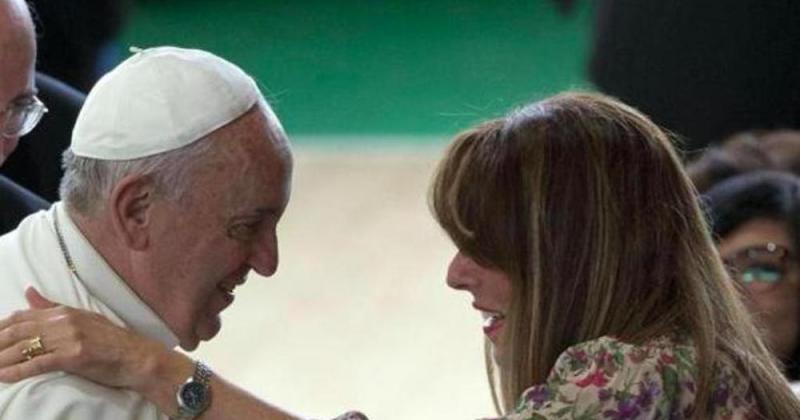With the Pontifical Council for Interreligious Dialogue, Francis denounces violence affecting women’s role and advocates the defense of their rights.
Many women “are well prepared to face inter-religious dialogues at the highest levels, and not only on the Catholic side,” women can also be fully “integrated” in exchanges “ at the level of religious experience “ as well as “at theological level “ an area where today “more than ever, it is necessary for women to be present”. The Pope said in a speech addressed to the participants of the plenary session of the Pontifical Council for Interreligious Dialogue.
This means that the contribution of women “must not be limited to “feminine” issues or encounters only among women, said Francis, who in his speech also widened his gaze to the more general female question: denouncing the hatred and violence that “afflict women in their dignity and in their role”. Invoking a “more incisive female presence” in society and in the Church. Women’s rights, he insisted, must be affirmed and protected, including, if necessary, through legal means. He then recalled the “invaluable” contribution of women in the field of education. Whether or not they are mothers, women “are often the only ones who accompany others, especially those who are the weakest in the family and in society, victims of conflicts, and those who must face everyday challenges.”
“It is clear that education in universal fraternity, which also means learning to build ties of friendship and respect, is important in the field of interreligious dialogue” said the Pope addressing the Vatican’s Dicastery on the theme “The role of women in education towards universal fraternity” during the plenary assembly (7-9 June). “Women are engaged, often more than men, at the level of “dialogue of life” in the inter-religious sphere, and in this way contribute to a better understanding of the typical challenges of multicultural life”.
“But women,” said Jorge Mario Bergoglio, “can also be fully integrated in exchanges at the level of religious experience, as well as at theological level. Many women are well prepared to face encounters of interreligious dialogue at the highest levels, and not only on the Catholic side. This means that the contribution of women must not be limited to “feminine” issues or encounters only among women. Dialogue is a path that men and women must pursue together. Today – the Pope said - more than ever, it is necessary for women to be present. Women, possessing specific characteristics, can offer an important input in dialogue, with their capacity for listening, acceptance, and opening up generously to others.”
The plenary - said Cardinal Jean-Louis Tauran, president of the Dicastery - was an opportunity “to show that the woman is not just tenderness of motherhood but she has also her place in society. Women - the prelate pointed out - are capable of having responsibilities like men, it is good to hear these points of view so to have a complete view of the woman seen as being the same to man, in front of God and society. Women must have the same responsibilities, the opportunity to assume the same responsibilities.”
Francis began his speech pointing out that “Unfortunately we see how today the figure of the woman as educator in universal fraternity is obscured and often not acknowledged, due to the many ills that afflict this world and which affect women in particular, in their dignity and in their role. Women, and even children, are indeed among the most frequent victims of blind violence. Where hatred and violence prevail, families and societies are torn, preventing women from carrying out, in a communion of intention and action with men, their mission of educator in a serene and effective way.”
On the contrary, it is necessary for the Pope to enhance the role of women: “Here resides the most valid premise for the consolidation of authentic fraternity. The growing presence of women in social, economic and political life at local, national, and international levels, and in the ecclesial context, is therefore a beneficial process. Women have the full right to be actively involved in all areas, and their right must be affirmed and protected also by legal means where necessary.
Furthermore, “The woman has always been at the centre of family education, not only as a mother” said Jorge Mario Bergoglio, for whom “the contribution of women in the field of education is inestimable.” And in conclusion if “ all people – men and women – are called to contribute to educating in universal fraternity which is, ultimately, education in peace in the complementarity of different sensibilities and roles.”
The Pope then emphasized “Therefore women, linked intimately to the mystery of life, can do much to promote the spirit of fraternity, with their care for the preservation of life and their conviction that love is the only force that can make the world inhabitable for all”.
However, Francis pointed out, “Women are often the only ones who accompany others, especially those who are the weakest in the family and in society, victims of conflicts, and those who must face everyday challenges. Thanks to their contribution, education in fraternity – by nature inclusive and generating bonds – can overcome the throwaway culture”
